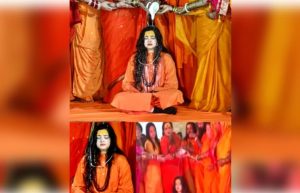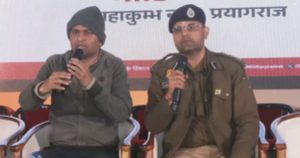No discrimination against LGBTs once Section 377 declared unconstitutional: SC

The Supreme Court of India (File Photo)
New Delhi : In a clear indication of its mind on the challenge to constitutional validity of Indian Penal Code’s Section 377 which criminalizes gay sex, the Supreme Court on Thursday said that all the discrimination against the LGBT community will be go once the provision is declared unconstitutional.
The court also made it clear that it would deciding on the validity of the provision on the basis of constitutional morality and not the majoritarian morality.
The five judge constitution bench, headed by Chief Justice Dipak Misra, said this in response to plea by senior counsel Chander Uday Singh that the court, besides declaring Section 377 unconstitutional, should also make positive declaration ending all kind of discriminations against the community.
Besides Chief Justice Misra, other judges on the bench are Justices Rohinton Fali Nariman, A.M. Khanwilkar, D.Y. Chandrachud and Indu Malhotra.
Buttressing his plea seeking positive declaration, Singh said that merely declaring Section 377 void would not end the problem and cited the instance of Britain and the US where long after homosexuality was decriminalized, discrimination and prejudice against the community continued.
Appearing for intervener Dr. Alok Sarin – the head of psychiatric services at Sitaram Bhartia Institute of Science and Research, he referred to the Mental Health Care Act, 2017 asserting that homosexuality is a natural variant of human sexuality and not a mental disorder.
At this, Justice Malhotra said: “Homosexuality has to be seen as variation and not an aberration” as ‘Prakriti’ and ‘Vikriti’ co-existed and there were hundreds of species which indulged in same sex intercourse.
Additional Solicitor General Tushar Mehta however differed with her, pointing out that the Prakriti and Vikriti could not be cited in the context of sexuality and homosexuality as the co-existence of two as mentioned in Vedas – Hindu philosophical texts – related to philosophical and spiritual spheres.
In a nearly nine hour long arguments spread over three days, the different petitioners and interveners represented by the senior counsel Ashok Desai, Krishnan Venugopal and others assailed the validity of Section 377 on the grounds of its being violative of fundamental rights guaranteeing equality before law, prohibition of discrimination on grounds of religion, race, caste, sex or place of birth, freedom of speech and expression and protection of life and personal liberty.
Venugopal appearing for distinguished academicians belonging to Delhi University and JNU said that it was not a matter of just “consensual sexual acts” but that of freedom to live, express, and love.
He said that far too many people have been denied the benefit of being full citizen of this county for too long and top court being the guarantor of fundamental rights must step in and rectify it.
In a brief repose, Additional Solicitor General Mehta drew the attention of the court to some of the submission made by the petitioners and urged the court to limit the issue to the challenge to the constitutional validity of Section 377.
However, he took exception when counsel Manoj George, appearing for a church body, accused the Centre of taking a U-turn on the issue, saying it had left it to the wisdom of the court.
Justice Khanwilkar also observed that since then, the top court has decided that the right to privacy was a fundamental right – a right that was not there when it had in 2013 had set-aside the Delhi High Court judgment decriminalising Section 377.
As George told the court that three private members bills seeking to amend Section 377 were rejected, thereby indicating the intention of Parliament, a lawyer defended Section 377 saying that those challenging its validity were just 5 per cent of the country’s population while yet another lawyer urged the court that public opinion should be elicited before deciding the issue.
At this, Chief Justice Misra said: “It can’t be the shifting morality of the society but it has to be the constitutional morality” that would prevail in deciding the challenge.
“We don’t follow majoritarian morality but constitutional morality… We don’t decide constitutional issues by referendum.”
The court is hearing of a batch of petitions by hotelier Keshav Suri, Sangeet Natak Akademi awardee Bharatnatyam dancer Navtej Singh Johar, a group of past and present IITians and 12 bureaucrats who are LGBT, NGO Voices Against 377, and others assailing the constitutional validity of Section 377.
Giving 90 minutes to respondents to reply, the court on Thursday indicated that it would conclude hearing on Tuesday – July 17 – the next date of hearing.
Published on: July 12, 2018 at 19:35 IST
IANS




